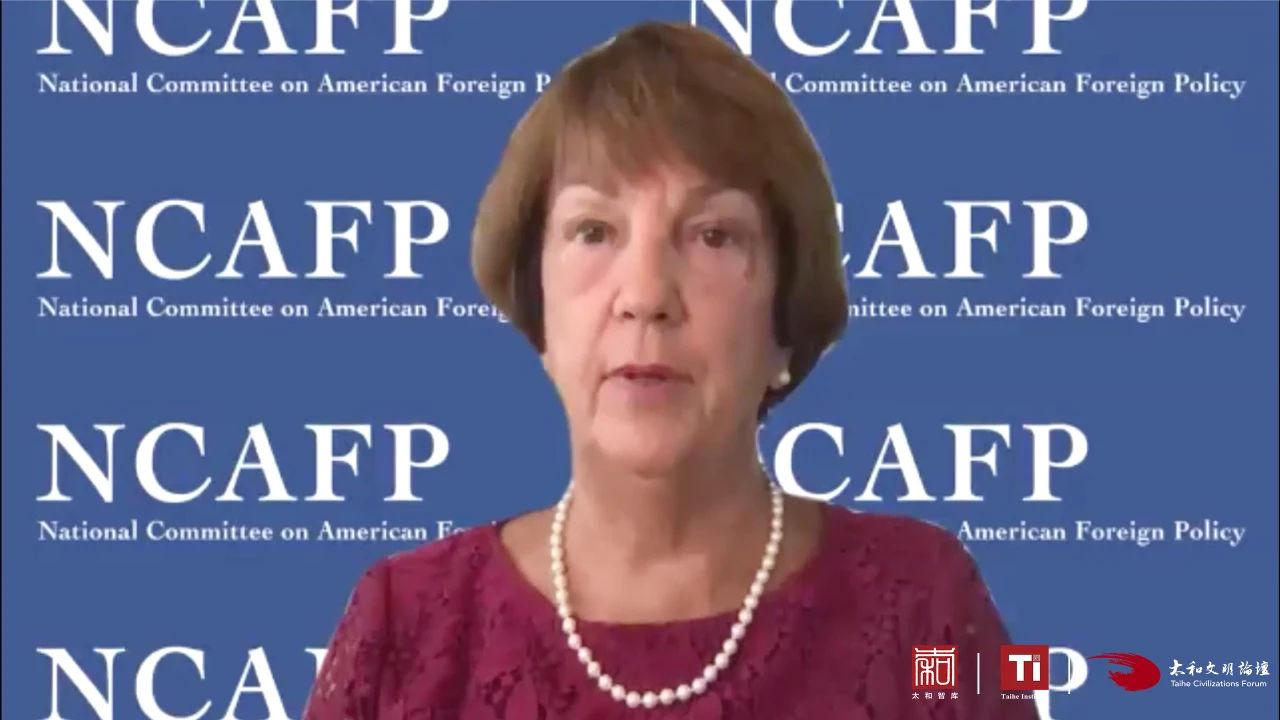Keynote Speech by Susan M. Elliott at the International Relations Sub-session of 2020 Taihe Civilizations Forum

Over the past 40 years since the establishment of diplomatic relations between China and the U.S., there have always been differences in political systems as well as ideologies between the two countries. Growth in both economies, but especially the phenomenal growth of the Chinese economy since 1979, has created contradictions between the two countries. Much has happened since last November – the completion of phase 1 of a U.S.-China trade agreement, (January 2020), the COVID-19 pandemic, the closing of Consulates in Houston and Chengdu, and the increase in negative rhetoric from both Washington and Beijing.
The increased tensions and breakdown of relations between the U.S. and China will have a negative effect on not just countries in the Asia Pacific region, but around the world. It appears relations are moving in a “downward spiral” and we need to find a way to stop this negative trend because the outcomes will affect not just the U.S. and China, but all countries of the world. The U.S. and China represent 40 percent of global economic output. If the two countries are “feuding with one another” then the world will become very unstable place where it will be difficult for commerce and business to thrive.
Considering the current world economy, especially since the outbreak of the pandemic, the tension between the U.S. and China will cause difficulties and challenges for everyone. What can be done to stop this downward spiral in U.S.-China relations? I have a few suggestions:
First, we should stop the “blame game” on the COVID-19 pandemic. The U.S. and China should call a truce and work together through diplomatic and private channels to develop effective COVID-19 diagnostics, treatments, and vaccines. When the pandemic is under control, both sides can look back and reflect on how to prevent pandemics in the future.
Second, we should resume trade/economic talks. While contentious at times, the dialogue and airing of problems/grievances on both sides is extremely important and needs to continue. Frank discussion on technology issues should be part of this. Rather than implementing unilateral actions like banning Chinese or U.S. companies activities in the respective countries, relevant parties from both capitals should engage in negotiations and constructive dialogue. The two largest world economies must work together. In my opinion, “decoupling” is not a viable option.
Third, we should de-escalate the increase of bans on student/official travel and limiting travel and expulsions of journalists. An important way to create mutual understanding between persons from different backgrounds is by the studying and visiting of each other’s countries. The U.S. look for “country neutral strategies based on risks and review the foreign government’s data practices, human rights record, and political institutions and legal environment.”
Finally, it is time for China to engage with the international community and address these concerns rather than allowing the escalation of activities which violate human rights and democratic freedoms. These actions will be difficult to implement, but I believe that both sides must commit to trying to de-escalate this negative activity.
Both China and the U.S. should be working together to be leaders in the support of international norms and systems. Without this commitment on both sides, I fear this escalation will do irreparable damage to the peace, stability, and security of the global economy.
Organizations like the Taihe Institute and the National Committee on American Foreign Policy play an important role in highlighting not only problems, but potential solutions to bilateral and multilateral issues. Both NCAFP and Taihe Institute are committed to building more platforms and channels of communication, enhancing exchanges and mutual learning between China and the U.S. in different fields, and contributing to the strength and stability of China-U.S. relations.
-

- The U.S-China Relations Can Be Restarted 13 October , 2020
-

- China and U.S. Enter ‘Protracted War’ 13 October , 2020
-

- The World has Ushered in a New Era of Multilateral Framework... 13 October , 2020
-

- 2020 Taihe Civilizations Forum Content Highlights 17 December , 2020
-
2020 Content Highlights
-

- Zheng Ruolin Senior Fellow of Taihe Institute; Senior Journalist of Wen Wei Post.
-

- Chu Yun-han Professor at the Department of Political Science at National Taiwan...
-

- Zou Ming Vice President of Phoenix New Media Ltd. ; Chief Editor of Phoenix New Media...
